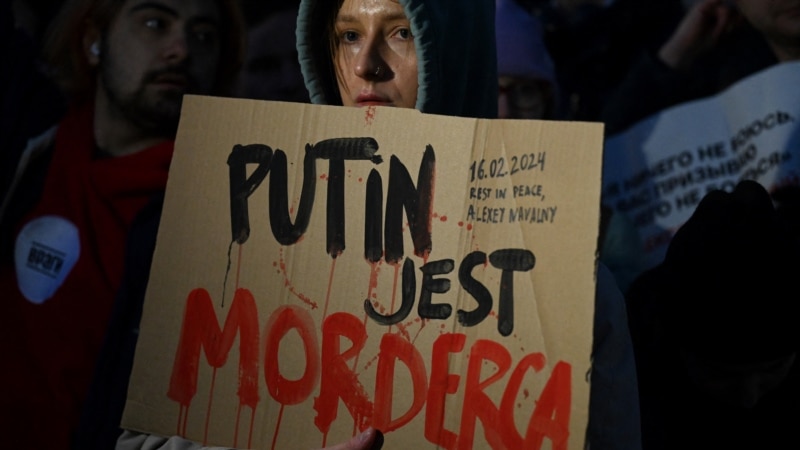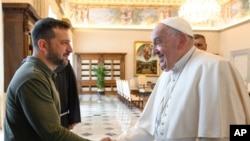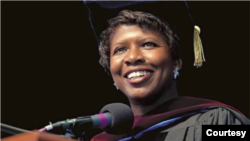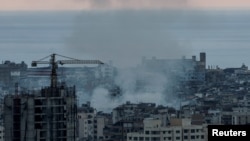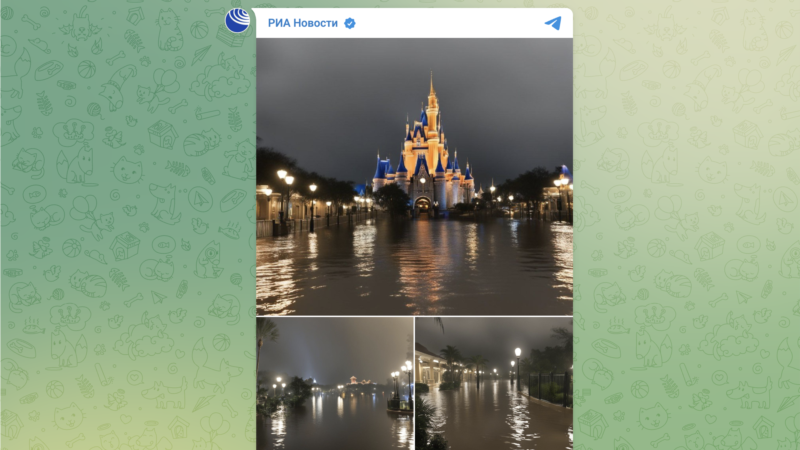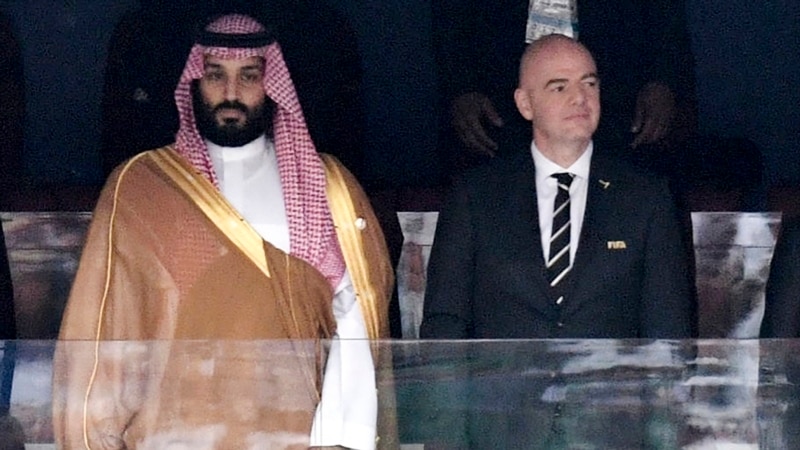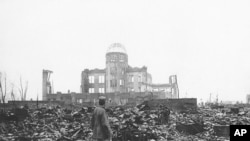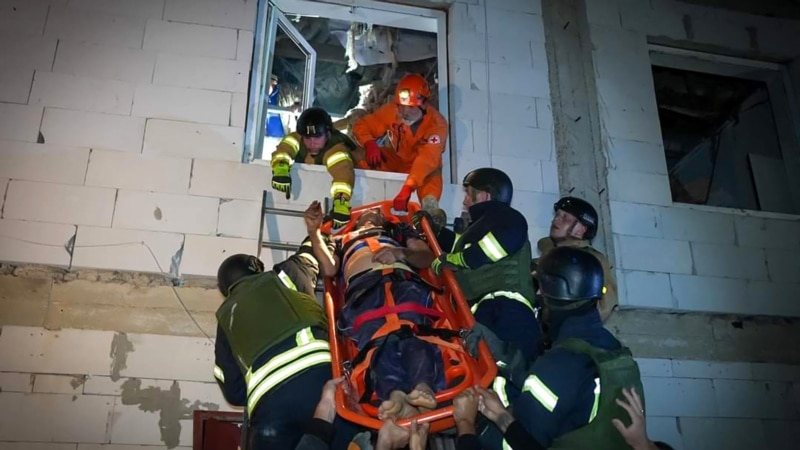A spokesman for Russian President Vladimir Putin says allegations made by the widow of Russian opposition leader Alexey Navalny that her husband was murdered are unfounded.
Yulia Navalnaya flatly said “Vladimir Putin killed my husband” in an online video statement released Monday, days after the 47-year-old Navalny died at a penal colony in the Arctic Circle where he was serving a three-decade sentence.
Kremlin spokesman Dmitry Peskov initially said he would not comment on Navalny’s accusations during a phone call with reporters Tuesday, but then dismissed them as “unfounded” and “boorish,” suggesting she made them during a moment of grief.
Peskov also said Navalnaya’s claims that authorities were holding her husband’s body for 14 days in order for traces of the nerve agent Novichok to disappear were nothing more than “unsubstantiated accusations” with no evidence to support them.
Navalny’s allies have said that his mother, Lyudmila Navalnaya, was denied access to a morgue in northern Russia. Navalny spokeswoman Kira Yarmysh said on social media that Lyudmila Navalnaya and her lawyers were “not allowed to go in,” and that “One of the lawyers was literally pushed out.”
In 2020 Navalny fell into a coma during a flight to Moscow and eventually was airlifted to Germany for treatment. German officials said there was “unequivocal proof” Navalny had been poisoned with the nerve agent Novichok, a Soviet-era chemical weapon.
A joint investigation conducted by CNN and the British-based investigative website Bellingcat concluded that a special team from Russia’s Federal Security Service (FSB) used Novichok to poison Navalny.
Navalny’s death last Friday has sparked international and domestic outrage, and many Western countries have pointed fingers at the Kremlin. U.S. President Joe Biden said on Friday, “Make no mistake, Putin is responsible for Navalny’s death.” Biden said what happened to Navalny is “more proof of Putin’s brutality.”
European Union foreign policy chief Josep Borrell expressed similar sentiments in a social media post on the X platform Monday. He said, “We expressed the EU’s deepest condolences to Yulia Navalnaya,” and that “Vladimir Putin & his regime will be held accountable.”
Putin has not commented on Navalny’s death.
Navalny’s death is a blow to many Russians who viewed the leader as a beacon of hope for what they see as a free Russia.
“We know exactly why Putin killed Alexey three days ago,” Yulia Navalnaya said, adding, “We will definitely find out exactly who carried out this crime and how it was carried out. We will name names and show faces.”
Navalny’s death comes ahead of a consequential election that is set to occur next month in Russia. The outcome could keep Putin in power until at least 2030.
“I want to live in a free Russia, I want to build a free Russia,” Navalnaya said, urging viewers to stand with her in her mission, and to “gather all together in one strong fist and hit this crazed regime with it – Putin, his friends, bandits in uniform, thieves and murderers who crippled our country.”
Over the weekend, mourners placed flowers at monuments throughout the country to commemorate the late leader, and authorities detained hundreds of people.
The French news agency reported on Monday that several people were seen bringing flowers to a monument of Soviet repression to commemorate Navalny, and that a heavy police presence was in the area.
At various locations in Russia, authorities removed floral tributes that people left behind, but as the tributes were removed, more flowers appeared.
Navalny is being remembered outside of Russia as well. In Kazakhstan, Russian rock singer Yuri Shevchuk performed a song to honor Navalny, and, addressing the crowd, said that Navalny spoke to Russians “about freedom,” and reminded them that they “could be free in the best sense of the word.”
Russian emigres, many having fled the country after Russia’s 2022 invasion of Ukraine, have also mourned the death in cities throughout Europe.
Protesters gathered around Russian embassies throughout Europe on Friday, holding signs calling Putin a “killer.”
At a protest in Berlin, hundreds of people chanted in Russian, German and English, many saying, “Putin to The Hague,” referring to the International Criminal Court.

